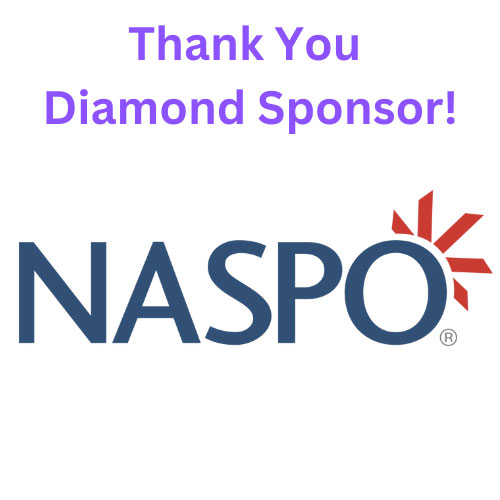| Workshop A: New to Higher Education |
March 11, 2024 | 8:30 AM–4:30 PM
|
| Field of Study: Business Management & Organization |
Program Level: Basic
|
7 CPE Credits |
| Callie Juarez, Senior Director, Academic Resources, California State University Northridge |
|
Description
Colleges and Universities have complex organizational structures which function and operate very similar to private industry. Strategies at institutions of higher education have a different focus and are designed around specific outcomes. This workshop is designed for new higher education employees and provides a basic understanding of the higher education business enterprise, associated concepts, business processes and some authoritative guidance.
|
|
Learning Objectives
By the end of this workshop, participants will:
- Apply information learned about the history and evolution of higher education to develop new focuses and designs around specific outcomes.
- Identify our stakeholders, governance structures and key business processes
- Discuss factors that influence fiscal processes
Return to Top
|
| Workshop B: Lean In Higher Education: Yellow Belt |
March 11, 2024 | 8:30 AM–4:15 PM
|
| Field of Study: Management Services |
Program Level: Basic
|
7 CPE Credits |
| Antonio Nava, Senior Strategic Initiatives Manager, University of California, San Diego |
|
Description
This high-energy immersive learning experience provides skills and tools that are proven to streamline processes and drive successful outcomes. Upon completion of the course, participants will be Lean Six Sigma Yellow Belt practitioners and prepared to share applicable tools and skills with their departments to advance strategic goals. This format leverages a simulation process improvement to provide a hands-on group experiential learning while exploring process improvement tools. Participants will collaborate to analyze and pilot potential improvements in real-time. As each tool is introduced, actual projects completed at UCSD are shared as case-studies.
|
|
Learning Objectives
By the end of this workshop, participants will:
- Understand the language and verbiage of process improvement and Lean Six Sigma
- Identify and apply tools of process improvement in a higher education setting
- Differentiate “Non-Value Added” activities and "Waste" in processes
- Discover how imprecise, ambiguous information can stall process improvement
- Measure and analyze data from core processes to identify opportunities for improvement
- Recognize the importance of integrating “Voice Of Customer” into any initiative
Return to Top
|
Workshop C: Developing Your Coach Approach
|
March 11, 2024 | 8:30 AM–4:30 PM
|
| Field of Study: Personal Development |
Program Level: Basic
|
7 CPE Credits |
| Carina Celesia Moore, MA, Retired, University of California, Davis |
|
Description
The most effective business officers in higher education are those who manage people and projects with positivity and a sense of curiosity (rather than with judgment and fixes) – they use a coach approach. In this interactive workshop, you will explore how to get to the heart of meaningful matters in moments through the art of asking powerful, open-ended questions, and listening deeply; that is, you will develop your coach approach. Whether you are a supervisor or an individual contributor, you can enable an innovative culture where ongoing, coaching conversations about performance, projects, and professional development, are a common practice throughout the year. By the end of this workshop, you will explore the International Coaching Federation (ICF) competencies, and leave with practical tools and techniques to increase your effectiveness in using a coach approach. You can look forward to future conversations your colleagues want, and that inspire everyone’s best work.
|
|
Learning Objectives
By the end of this workshop, participants will:
- Identify International Coaching Federation (ICF) Core Competencies
- Differentiate between coaching, advising, counseling, mentoring, training, consulting
- Apply using “powerful questions” to create coaching conversations people want
- List potential actions for using a coach approach at work
Return to Top
|
| Workshop D: Taking On the Next Challenge: Taking Your Leadership Skills to the Next Level at Your Institution |
March 12, 2024 | 8:30 AM–4:30 PM
|
Field of Study: Personnel/Human Resources
|
Program Level: Basic
|
7.5 CPE Credits |
Dr. Sara Reed, Vice President, People & Talent, Western Governors University
Megan Glide Villasenor, Chief of Staff to the AVP & System-wide Controller, University of California System
|
|
Description
Within higher education, we need to be both resource managers with a sense of stewardship, and leaders helping move our teams forward through engaged leadership. This workshop will cover theory and practical application, using case studies, discussion, and reflection to explore how leaders within higher education can both manage resources smartly and lead people with intent and vision.
|
|
Learning Objectives
By the end of this workshop, participants will:
- Identify supervisor, manager, and leader behaviors and how to lead intentionally.
- Express individual leadership values and philosophy
- Outline the stages and conditions for a leader to create psychological safety
- Apply practical skill concepts to case studies
- Complete a leader development plan to continue individual leadership learning beyond the workshop
Return to Top
|
| Workshop E: WACUBO Accounting for Non-Accountants |
March 12, 2024 | 8:30 AM–4:30 PM
|
Field of Study: Governmental Accounting
|
Program Level: Basic
|
7.5 CPE Credits |
Ken Erickson, Director of Research and Compliance, University of Utah
Joanne Richardson, Assistant Vice President for Budget & Personnel, University of Texas at El Paso
|
|
Description
This class will help you expand your knowledge and effectiveness as a leader in higher education by understanding the basic principles of financial and fund accounting. Understanding the basics of accounting in higher education will allow you to better converse with your finance, accounting, and budget staff. It will also show you how accounting can help drive management decisions. Finally, we will present several recent fraud occurrences that have occurred in higher education, including what you need to watch out for based on the latest scams. Additional information on analyzing and interpreting financial statements will be provided, along with excellent networking opportunities with colleagues throughout the WACUBO region and beyond who will be in attendance.
|
|
Learning Objectives
By the end of this workshop, participants will:
- Ability to read financial statements
- Understand fund accounting
- Identify the difference between cash basis accounting and accrual accounting
- Apply straight-line depreciation
- Identify internal controls and the fraud triangle
- Discuss current cases of fraud in higher education
Return to Top
|
Workshop F: Higher Education Accounting & Reporting
|
March 12–13, 2024 | 8:30 AM–4:30 PM
|
| Field of Study: Accounting |
Program Level: Basic
|
14 CPE Credits |
Michael D. Baumert, Assistant Vice President and Controller, Arizona State University
Brian Thomason, Vice President for Finance and Controller, Chapman University |
|
Description
Get beyond the basics of accounting and reporting and expand your knowledge and effectiveness as a leader in higher education accounting and reporting. This workshop offers attendees a solid review of the theoretical framework of higher education accounting and reporting. Operational, investing, and financing activities of the institution are reviewed – along with the impact of these activities on the financial statements. Additional information on analyzing and interpreting financial statements will be provided, along with excellent networking opportunities with colleagues throughout the WACUBO region.
|
|
Learning Objectives
By the end of this session, participants will:
- Discuss the purpose of fund accounting systems and its relevance in today’s reporting formats
- Differentiate operating and non-operating activities
- Analyze recognition issues pertaining to revenue and expenses
- Recognize relevant laws and account standards that govern endowments, gifts, and restrictions
- Identify differences between financing capital and operating activities
- Identify the basic financial statements and information included in financial reports
Return to Top
|
Workshop G: From Development to Performing: Leading Your Team to Success
|
March 13, 2024 | 8:30 AM–4:30 PM
|
Field of Study: Personal Development
|
Program Level: Basic
|
7 CPE Credits |
Dr. Sara Reed, Vice President, People & Talent, Western Governors University
Megan Glide Villasenor, Chief of Staff to the AVP & Systemwide Controller, University of California Office of the President |
|
Description
This workshop will review the stages of team development, integrating specific actions and tactics to support individuals and teams in moving through the stages – for formal and project teams. It will also explore what work looks like a post COVID-19 environment. Specifically, leaders across all types of higher education institutions are leading teams in many ways with teams in multiple locations.
In an engagement-driven workshop, participants will learn about leading and managing teams in remote and hybrid ways, including reflecting on their own leadership practices and how they can strengthen connection, community, and mission accomplishment in support of their institution’s strategic goals.
|
|
Learning Objectives
By the end of this workshop, participants will:
- Identify the stages of team development
- Describe key elements of team coaching to support team development
- Explore fundamentals to establish and lead a remote/hybrid team more effectively.
- Recognize the unique challenges faced by remote/virtual or blended teams.
- Support and engage team members in different ways
- Identify the specific skills required for managing remote/hybrid teams
- Recognize potential bias and opportunities to mitigate while leading teams
Return to Top
|
Workshop H: Grants Management
|
March 13, 2024 | 8:30 AM–4:30 PM
|
Field of Study: Specialized Knowledge
|
Program Level: Basic
|
7.5 CPE Credits |
Ken Erickson, Senior Director, Post-Award Research Administration and Compliance, University of Utah
|
|
Description
This workshop is designed to provide business officers with a solid grants management and administration foundation. Understanding key concepts, overarching policy, related methodologies and identifying value-added activities are key to successfully managing sponsored research.
In this workshop, attendees will learn about the governing regulations and compliance requirements for Sponsored Research projects (and how they are applied) at their institution. It will be critical to understand and differentiate the roles for Central Administration and for Departmental Administration at their institution. Formulate options that are most applicable. Coordinate research plans with campus leadership (VPR, CFO, VPs, Deans, Chairs) and with PI s. Attendees will leave this workshop knowing to build a network of colleagues who have similar roles and responsibilities and who face many of the same challenges and opportunities.
|
|
Learning Objectives
By the end of this workshop, participants will:
- Understand elements of sponsored agreements and arching applicable guidance.
- Utilize value-added activities to improve Internal Controls to assist the compliance process.
- Identify methodologies used to monitor Service / Recharge Centers.
- Understand the governing regulations and compliance requirements for Sponsored Research projects to apply at their institution.
- Manage allowable Direct Costs and Indirect Costs.
- Gain the ability to Manage the “Grants and Contracts Life Cycle” (from beginning to closing) for Sponsored Research.
- Differentiate the roles of Central Administration and Departmental Administration at their institution to formulate applicable options. Coordinate research plans with campus leadership (VPR, CFO, VPs, Deans, Chairs) and with PI s.
- Identify applicable Data Analytics to employ at their institution.
- Build a network of colleagues who have similar roles and responsibilities and who face many of the same challenges and opportunities.
Return to Top
|



